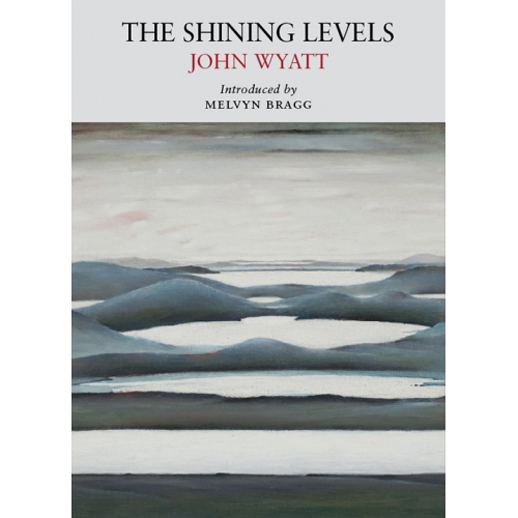
by John Wyatt. (Little Toller Books)
Review by Neil Ansell.
The Shining Levels is an old-fashioned book, in the best possible sense of the term. It is a book shaped by life, rather than a quest undertaken to fit the requirements of a book proposal, as sometimes seems to be the case with more recent nature writing.
In 1961, John Wyatt became the first warden of the Lake District, which had only recently become the first of our National Parks. He was the very first of his kind, and would remain in the lakes for the rest of his life. His deep and enduring love for the Lake District, its landscape and its nature, is apparent on every page of this delightful book.
The Shining Levels, first published in 1973, already many years after the time it depicts, is a reflection on his early years, when as a young man he withdrew from society and took a job as a forest worker, unable to resist the overpowering sense of coming home he had felt every time he visited the area. He took the job in return for the most basic of cabins in ‘the Great Wood’, and subsistence pay. Even this hut, without water or electricity and filled with smoke and invading wildlife, was not enough of an immersion in nature for him, as he frequently retreated to the deepest recesses of the forest to live in a turf-clad shelter of fallen branches that he had built, where he attempted to live off the land – while continuing his work in the woods each day. He looks with sensitivity at weather and wildlife – he is especially good on plants and mammals – and the hardships of daily life, and is occasionally moved from depicting the practicalities of his life to a great lyricism.
Solitude is a glade close-pressed by trees – great thick clouds of tress, leaf-rippled by the warm air. It is the hum of summer insects, the slow pendulum swing of a silk-held caterpillar, the beckoning of a fern frond. And a deer in the dappled green shadows, eyes half closed and jaws moving at the cud, ears turning to catch the hushed whispers of warning from the wood. True solitude is not loneliness. It is a great oneness.
It was not a completely isolated life, however. He depicts his not-so-near neighbours and his workmates with considerable wit and affection, whether they are coppicing together, fighting fires, or going on a drunken spree. And part-way through the book he acquires a companion – a lost roe deer fawn which he reluctantly agrees to raise, and which ends up making him something of a local celebrity. It is not an animal that could ever be a pet, but his unsentimental, insightful account of the roe deer buck’s growth to adulthood is one of the best accounts of the relationship between man and animal that I have ever come across.
This is a book that reads like life – you never quite know where it is going to lead you next, and it is full of unexpected digressions on such things as moth-hunting, deer stalking or wild food. This very quirkiness gives the book its own unique charm and authenticity. But it all combines to create the impression of an almost childlike wonder at the place on earth he has made his own that is perhaps reminiscent of Annie Dillard’s Pilgrim at Tinker Creek. This wonder is reflected in the book’s title – the ‘shining levels’ are not just a description of the surface of a lake in moonlight, but something else altogether. Here is Wyatt describing a simple foxglove;
…it is the fact that it is there – among the ferns close about this crumbling fallen tree, surrounded by legions of its kin glowing through the glade in mauve drifts in the sunshine-shafts that break through those great lichen-speckled oak trunks, under the green frondose clouds that stir to the west wind and are filled with blackbird song – that is important. It is the pulsing, breathing, thrusting life, the wholeness, that pours in on your senses. It is the impression of a perfect wholeness that can lift you up to a higher, shining level of consciousness.
Little Toller Books have been steadily putting together an excellent library of classics of British nature writing, many of them out of print for years or even decades. John Wyatt’s The Shining Levels richly deserves its place amongst them.
Neil Ansell is the author of Deep Country: 5 Years in the Welsh Hills, out now in paperback.